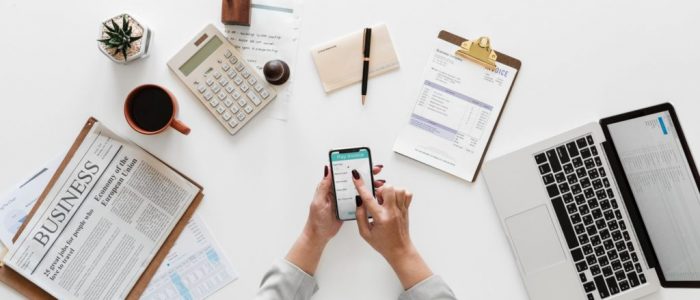Thinking of learning to manage your personal finances but don't know where to start? Why is it so important to get down to business as soon as possible to learn all about finance? What are the best tricks and the most effective recommendations to efficiently manage your finances?
Investing in the stock market, financial mathematics, business valuation, large investments, financial accounting, corporate finance ... Although you can learn everything about financial education, the reality is that starting to learn finance and financial education can be overwhelming, especially if you never before you have had contact with this matter. It can be hard at first to understand how to manage your money, how to organize debt payments, and where and how to make the most profitable investments.
But, with these simple steps, you can do everything without any difficulty, while reserving part of your assets for your emergencies and retirement, always ensuring all your efforts. Have you already prepared yourself to learn all about personal finance and how to be more determined when it comes to making new decisions when it comes to it?
Start by creating your own budgets
The first step is to collect all the information and financial statements to create a budget, as this is one of the priority aspects of personal finance. With a realistic budget you can plan how to use the money you receive month by month and illustrate your spending patterns.
Try to gather as much information as possible, from bank receipts, subscriptions, invoices, statements of your investments and all other information that you can use.
Think of this exercise as a way to calculate how much you make in a month and how much you spend in the same period, so the more details you provide, the more accurate your budget will be.
Once you have all this information, the next step is to differentiate each source of income. Record the amount of income you earn each month, making sure you include any secondary work you do.
If you detect variations, the recommendation is to calculate your average income for the last half of the year.
Writing down your variable monthly expenses, it also allows you to know the expenses that you can do without month by month. These are not usually really necessary expenses, so you can make adjustments that allow you to optimize them: groceries, fuel, subscriptions and leisure are usually the most common variable expenses.
When you calculate all your income and expenses (both fixed and variable), the next thing is to add each category. Remember that the ultimate goal is for income to exceed expenses in order to decide where to invest that surplus. On the other hand, if your expenses exceed income, then you will have to adjust your budget to reduce expenses or increase income.
How to manage all this? Very easy. If your budget tells you that you are earning less than you are spending, you may need to review your variable expenses to find ways to reduce them. For example, if you go out to party four times a month, it is possible to reduce it to two nights a month. In this way, you will free up money to spend on essential expenses, such as electricity or internet bills.
It is also possible that you are paying a monthly fee that you do not need, such as late fees. Try to fix this as soon as possible to keep some buffer in your bank account.
Another way to optimize: work to earn more instead of spending less. Overtime, moonlighting or any other additional work can help the amount of money you earn each month.
At the end of the month, you will have to spend some time reviewing your spending for the last month. Was the budget tight? If not, what happened? Detecting where you are exceeding your budget is useful to understand what types of expenses you need to pay more attention to. Although it also serves to motivate you by checking the amount of money you managed to save by reducing the days you dedicate to nightlife.
Use the best strategies to pay off debts
Assume it as soon as possible: it is possible that even if you follow a strict budget, you cannot totally avoid your doubts. High implication purchases, such as a car, university or a house, make it necessary that you have to resort to loans. In addition, with credit cards it is possible that they make you accumulate debt almost without you noticing.
One of the basics of personal finance is understanding that you must learn how to take care of any debt as soon as possible.
To achieve this you just have to be able to pay more than the minimum as soon as possible. For example, if you have a car loan of € 150 a month, paying even € 200 a month can help you pay it off sooner, as well as reduce the amount to be paid in finance charges over time. Be clear: the more you can pay above the minimum, the better.
Transferring your credit card balances with high annual percentage rates to a card with a lower or zero rate will ensure that your full payment is applied to your balance and not to interest.
It is important to read the fine print before transferring a balance. Make sure you understand the terms of the new agreement and look for the best option before making the balance transfer.
On the other hand, if you have several credit cards, it is usually advisable to compare the amount of debt you have with each one.
Using excess funds to pay off debts is often a brilliant idea. Once you are able to stick to your monthly budget, you can dedicate the additional funds at the end of the month to pay off your debt. It's tempting to use that money to enjoy a fancy dinner or a new television, but remember your long-term goals before doing this. In the long run, paying off debt is better than giving yourself an unnecessary beauty treatment.
If you have multiple credit card accounts, loans, mortgages, you are paying for a car or you have a combination of any of these debts, consolidating them into a single payment is a way to simplify your payment. Generally, when you do, you get a debt consolidation loan that typically has a lower interest rate and requires lower monthly payments.
Refinancing is another possibility if your situation has improved since you incurred your debt. It is similar to debt consolidation in that it also consolidates your debts and allows you to make lower monthly payments. It can also help you shorten the term of your loan to finish paying your debts as soon as possible and, depending on your situation, you can opt for a lower interest rate.
Save for the essentials
Many people underestimate the potential of committing to depositing money into their savings account on a monthly basis, but it is crucial to getting enough money for emergencies and for your future. If possible, set up automatic payments to your savings account every month. For example, you can automatically transfer € 50 to your savings account once a month, although it is advisable to allocate monthly from 10 to 20 % of the income to savings.
Retirement savings plans allow you to start saving as soon as possible so that you can live comfortably when you stop working. The amount needed will depend on different factors, such as when you are going to start saving, how much you start with and if you will receive any additional contribution.
In addition to retirement savings, saving for emergencies or unforeseen events, such as job loss, car repair, or unexpected medical expenses, is also essential. This savings account can be your emergency fund. It is advisable to have enough savings to cover about 45 days of maintenance for each person who claims as a dependent. For example, if you are married with two children, you should have enough to cover six months of living expenses.
Learn to invest as a beginner
Finding out where to invest your money is one of the most confusing parts of personal finance basics. Mainly, you have a wide variety of stocks, bonds and treasuries, but which ones?
If you go for a practical approach to investing, the key is diversification, as it will help you reduce risk.
Diversifying means choosing a variety to invest in, ensuring that investments are spread across different companies and industries.
In this way, if a company or sector suffers some kind of recession, you will only lose a part and not the whole.
Why is it so important to insure your investments
Insurance that protects your home is one of the best assets you can get. Home insurance is especially recommended for those who have a mortgage. It is a type of insurance that will prevent you from paying out of pocket for any type of important and unforeseen repair in your home.
If you are renting, it is just as valuable to bet on renter's insurance. All your belongings can add up to a significant amount, so obtaining one of these insurances will help you to be protected in the event of theft, fire, flood or any other type of disaster.
Life insurance, meanwhile, is essential if you are married or have children. Life insurance guarantees that all or part of your income is supplemented in the event of death. If you want to prevent your family from facing tough financial situations, you can opt for one of these insurances.
Health insurance can also help pay for the cost of medical treatments and can be helpful in the event you lose your job if you are seriously injured.
Contact a professional planner
One thing you can do to improve your personal finances is to start working on them as soon as possible. Even if you feel like you have a lot of time to save until retirement, you can lose a lot of money in interest if you wait too long. Financial planning should be a basic part of your life that you should start as soon as possible.
If you plan your future in company, including your partner in the planning is usually a good step to start. Talk to her and include her in the process so you can tune into savings habits that allow you to develop an effective plan.
Keep in mind that if you are faced with difficult financial situations, it is important to plan alternative options that prevent them from affecting your financial security.
Many people believe that saving for retirement is a race to reach a certain amount of savings before retirement. However: this has its nuances.
Think about everything you will have to pay: housing, medical care, care for the elderly, leisure, transportation, etc. and do your best to estimate the cost of all this and how you will deal with it.



